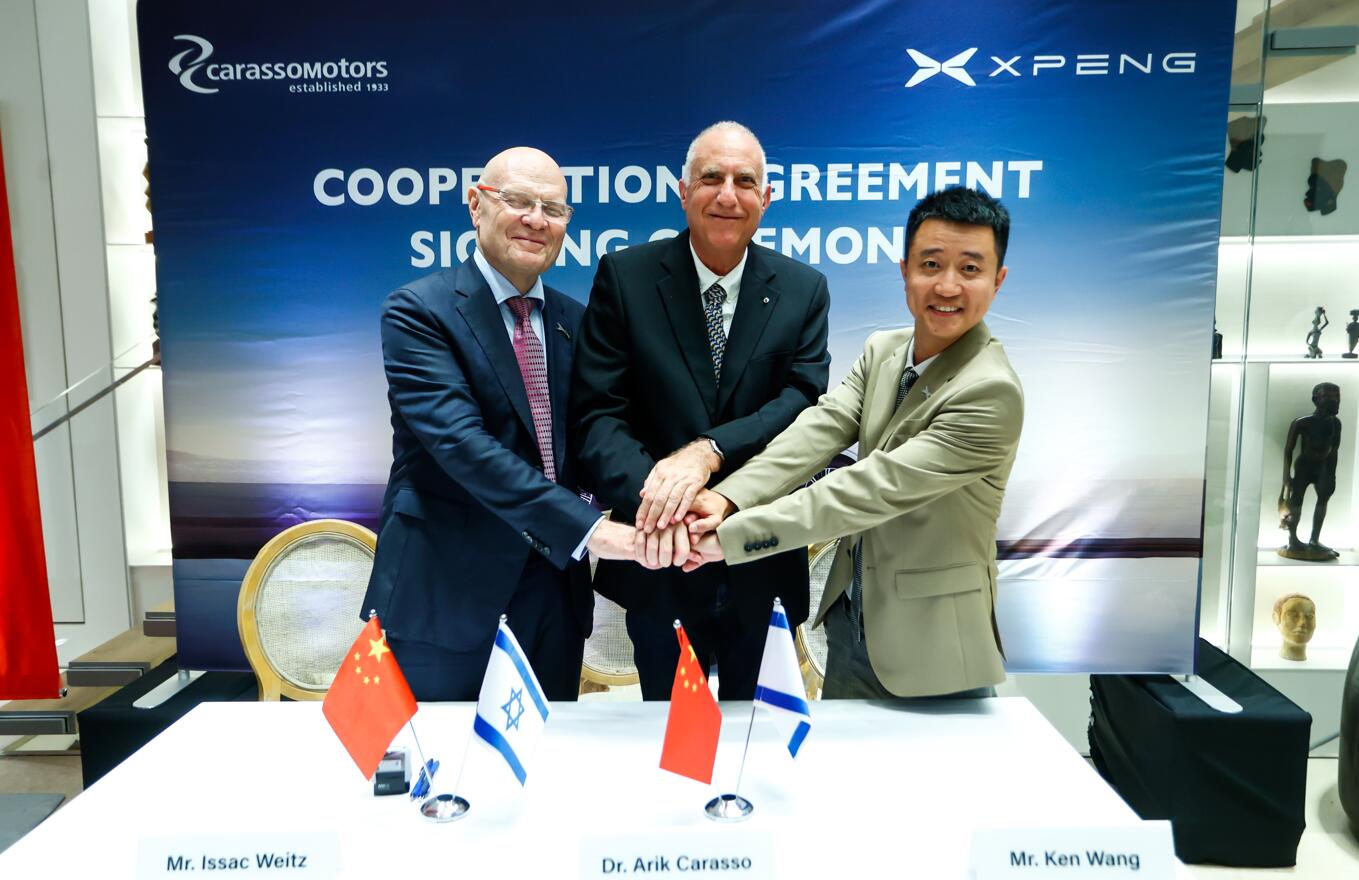EV buyers in Israel currently enjoy a 20 percent purchase tax, well below the 83 percent for regular gasoline vehicles.

(Image credit: Xpeng)
Xpeng (NYSE: XPEV) is ramping up its efforts in the global market, as the Chinese electric vehicle (EV) startup expects a turnaround of sales in its home market later this year.
The EV maker announced today a strategic partnership with Freesbe, previously known as Carasso Motors, one of Israel's largest car dealership groups, which will develop Xpeng's sales and service network in the Middle East country.
Freesbe is a publicly traded Israeli company that represents brands including Nissan, Infiniti, Renault and DACIA. Its lease4u is one of the largest leasing companies in Israel.
With the move, Xpeng is expected to test the waters overseas with lower investment, unlike its local counterpart Nio (NYSE: NIO), which is building direct stores and battery swap and charging stations as it expands into the European market.
"We have seen the huge potential of Israel EV market and would like to bring local customers a new level of sophistication with our leading technologies and premium EV products," said Eric Xu, vice president of international markets for Xpeng.

Israel's commitment to the transformation of the automotive industry to electric may have been an important factor in attracting Xpeng.
In October 2021, Israel announced its goal of achieving net zero emissions by 2050. A plan developed by Israel's Ministry of Energy pledges that the country will completely ban imports of gasoline and diesel vehicles starting in 2030, and imports will be limited to electric or natural gas vehicles.
Xpeng believes technology is a major driver of the global EV transition, its press release said, adding that Israel is at the forefront and the company strongly supports a carbon-neutral strategy and looking to accelerate electrification there.
In its previous efforts to explore international markets, Xpeng has focused on the European market.
The company had a series of moves in Europe early last year, including the opening of its first experience store in international markets in Sweden.
On March 10, 2022, Xpeng allowed local consumers to pre-order the P5 sedan, the company's third production car, in Denmark, the Netherlands, Norway and Sweden.
However, on June 22 last year, Xpeng announced that it was suspending all P5 reservations and pre-orders in the four European countries and would shift its focus to the P7 sedan, citing foreseeable export schedule issues.
In the months following that, there was no further news about Xpeng's moves in Europe.
On February 3 of this year, Xpeng announced the launch of its G9 flagship SUV and the new P7 sports sedan to the European market, marking its resumption of efforts overseas.
The partnership with Freesbe to expand into the Israeli market comes at a time when Xpeng's sales performance is expected to see significant improvement after the launch of the new SUV G6 in China.
Xpeng's deliveries have been weak since the second half of last year, dropping from 15,295 units in June 2022 to 5,218 units in January this year.
Since February, Xpeng's monthly deliveries have continued to rebound, growing to 8,620 units in June.
Xpeng officially launched the G6 in China on June 29 with a starting price of RMB 209,900 ($29,070), significantly lower than the starting price of RMB 263,900 for the Tesla (NASDAQ: TSLA) Model Y, its main competitor, in China.
Since pre-sales began on June 9, the G6 had more than 35,000 pre-sales orders as of June 28, Xpeng chairman and CEO He Xiaopeng said at the model's launch event, adding that the G6 is on track to become the top-selling smart electric SUV in China in the RMB 250,000 price level within two months.
The G6 has received a large number of orders, which would help Xpeng see monthly deliveries of 15,000 units in the third quarter and 20,000 units in the fourth quarter, Brain Gu, Xpeng vice chairman and president, told English-language media reporters, including CnEVPost, at an online conference on July 5.
Xpeng is the latest Chinese carmaker to target the Israeli market, with its local counterpart Leapmotor opening its first three showrooms in the Middle Eastern country in November 2022.
BYD (OTCMKTS: BYDDY), for its part, announced plans to enter Israel last August and began delivering the Atto 3 in the country in October. A total of 2,333 Atto 3 units were sold in Israel in November 2022, making it the country's best-selling model, BYD said on December 5 last year.
As a densely populated, relatively small territory, Israel is seen as having considerable potential to embrace EVs, the official Chinese news agency Xinhua said in a report last September.

Israel has its own sources of natural gas, relatively low electricity prices, and high fuel prices that can push the market to adopt EVs based on electricity produced from natural gas, the report quoted Israeli economic analyst Michal Reut-Gelbart as saying.
Taxes also explain why EVs have potential in Israel.
"Currently in the Israeli market, buyers of electric cars are enjoying a 10-percent purchase tax, which is much lower than the tax for regular gas cars that gets up to as high as 83 percent," the Xinhua report quoted Tome Hadar, automotive editor of Calcalist, Israel's largest financial newspaper, as saying.
It is worth noting that Israel's EV purchase tax doubled to 20 percent starting in January 2023 and will rise to 35 percent from 2024 onward, which is nonetheless far lower than that on regular gasoline cars.
(1 $= RMB 7.2212)
Xpeng works to boost capacity as G6 wait time exceeds 10 weeks



